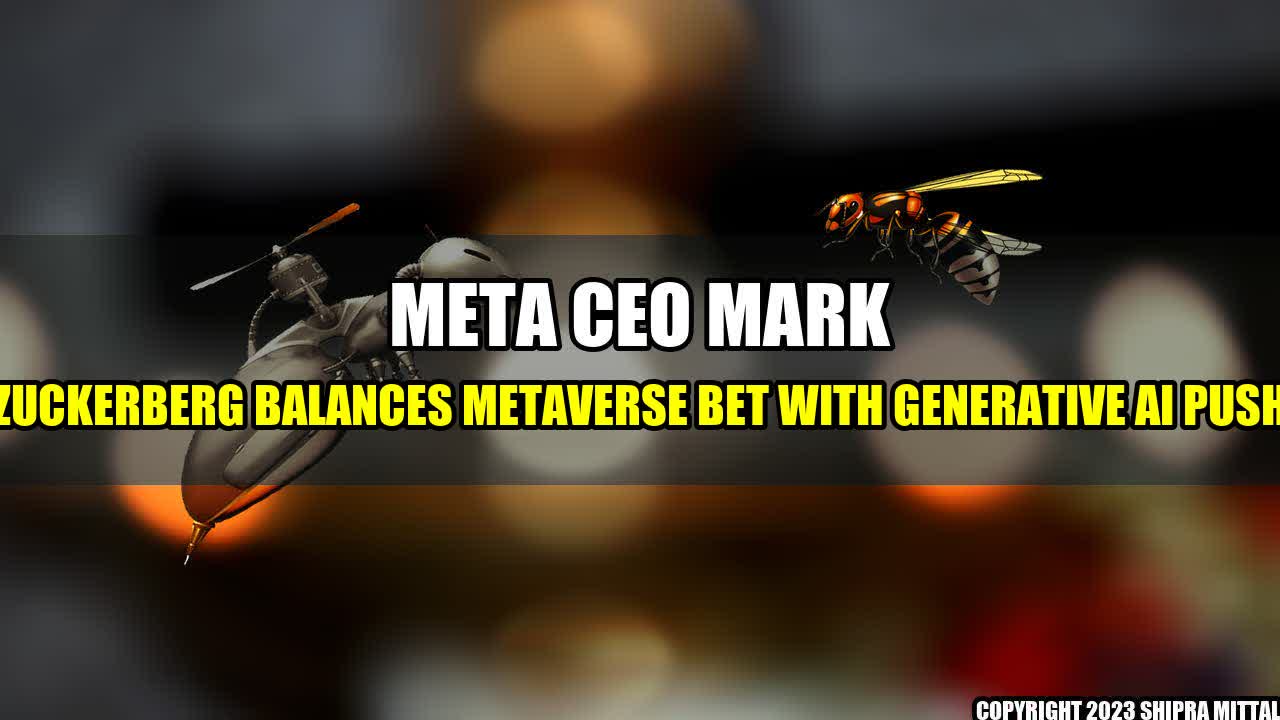The Metaverse: A Vision for a Virtual World
The metaverse is Zuckerberg's answer to a fundamental problem with the internet: it lacks physical presence. While the internet has allowed us to connect with people from all over the world, it still feels like we're communicating with each other through a screen. The metaverse, on the other hand, would be a virtual world that we could inhabit together, with the same sense of presence and physicality that we experience in the real world.
Zuckerberg has been talking about the metaverse for several years now, but his vision for it has become more concrete in recent months. He has spoken about creating a metaverse that would be accessible to everyone, regardless of their device or internet connection. The metaverse would be a place where people could work, play, and socialize together, with a level of immersion and interactivity that the internet has never been able to provide.
"The metaverse will help us transcend the physical limitations of the world, allowing us to be anywhere we want at any time we want." - Mark Zuckerberg
One of the key challenges of building a metaverse is developing the technology that can support it. Zuckerberg has acknowledged that this is a long-term project, and Meta is investing heavily in developing the necessary technologies, such as virtual and augmented reality (VR/AR) and advanced AI.
However, there are also concerns about the social and economic implications of a metaverse. Critics worry that a metaverse could exacerbate existing inequalities, creating a world where people with more resources have access to better experiences and opportunities than those without. There are also concerns about how a metaverse would affect our sense of identity and connection to the physical world.
Despite these concerns, Zuckerberg remains bullish on the metaverse's potential to transform the way we interact with technology and with each other. He sees it as the next frontier in the evolution of the internet, and he believes that Meta is uniquely positioned to lead the way.
Generative AI: Creating Intelligent Machines That Can Learn on Their Own
Zuckerberg's metaverse project might be his most high-profile initiative, but he is also deeply committed to advancing the field of generative AI. Generative AI refers to machines that can learn on their own, without explicit instructions from humans.
This is different from traditional AI, which requires humans to painstakingly code every possible scenario that a machine might encounter. With generative AI, machines can learn from experience, just like humans do. This opens up many new possibilities for AI, from creating more realistic video game characters to helping doctors diagnose diseases more accurately.
At Meta, Zuckerberg has assembled a team of experts in generative AI, and the company has made significant investments in the field. Zuckerberg has said that he believes generative AI will be "one of the biggest breakthroughs in the field of AI in the next decade."
The potential uses for generative AI are vast and varied. For example, Meta is using generative AI to create more sophisticated virtual assistants that can understand natural language and generate responses in real time. The company is also exploring how generative AI can be used to create more lifelike virtual avatars in the metaverse.
Generative AI could also have significant implications for the job market. As machines become more capable of learning on their own, they could start taking over tasks that were previously done by humans. This could lead to massive disruption in certain industries, but it could also free up humans to focus on more creative and fulfilling work.
How the Metaverse and Generative AI Are Related
At first glance, the metaverse and generative AI might seem like two unrelated projects. However, they have more in common than you might think.
For one thing, both projects rely heavily on advanced technologies like VR/AR and AI. Developing these technologies is crucial for both the metaverse and generative AI to succeed.
Additionally, both projects are part of Zuckerberg's larger vision for the future of technology. He sees them as complementary initiatives that are both necessary for building a more advanced and more immersive form of online communication.
However, there are also some potential conflicts between the two projects. For example, some experts have raised concerns that the development of the metaverse could come at the expense of other important areas, like improving access to quality education and healthcare. Others worry that investing too heavily in AI could lead to job displacement and even greater income inequality.
Despite these concerns, Zuckerberg is pushing forward with both projects. He believes that they are necessary for the continued growth and evolution of technology, and he is committed to making sure that the benefits of these technologies are spread as widely as possible.

Curated by Team Akash.Mittal.Blog
Share on Twitter Share on LinkedIn